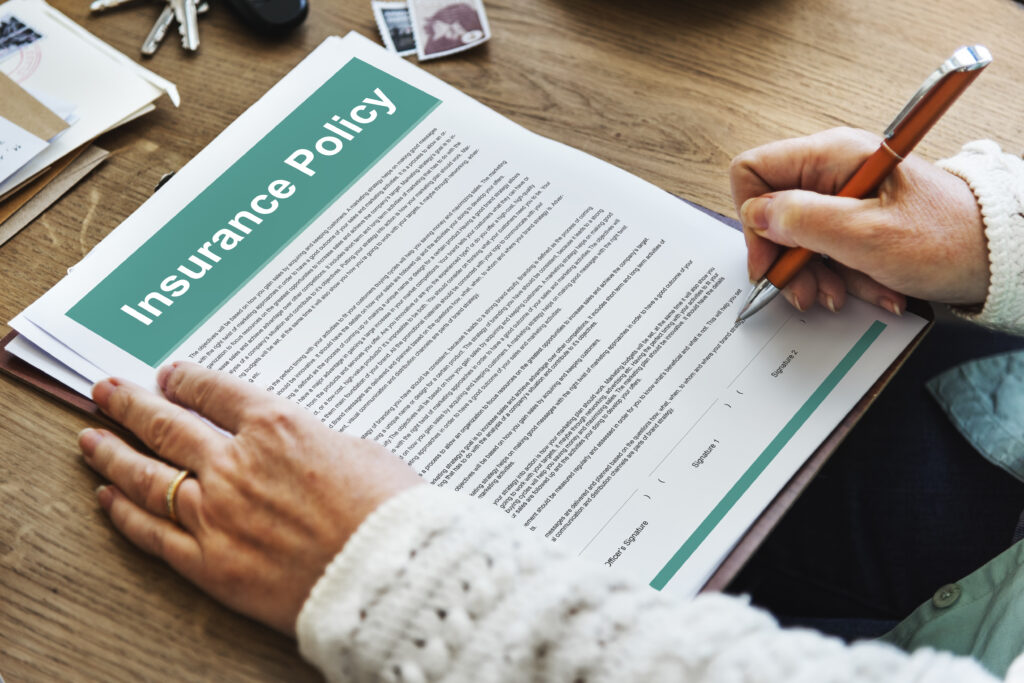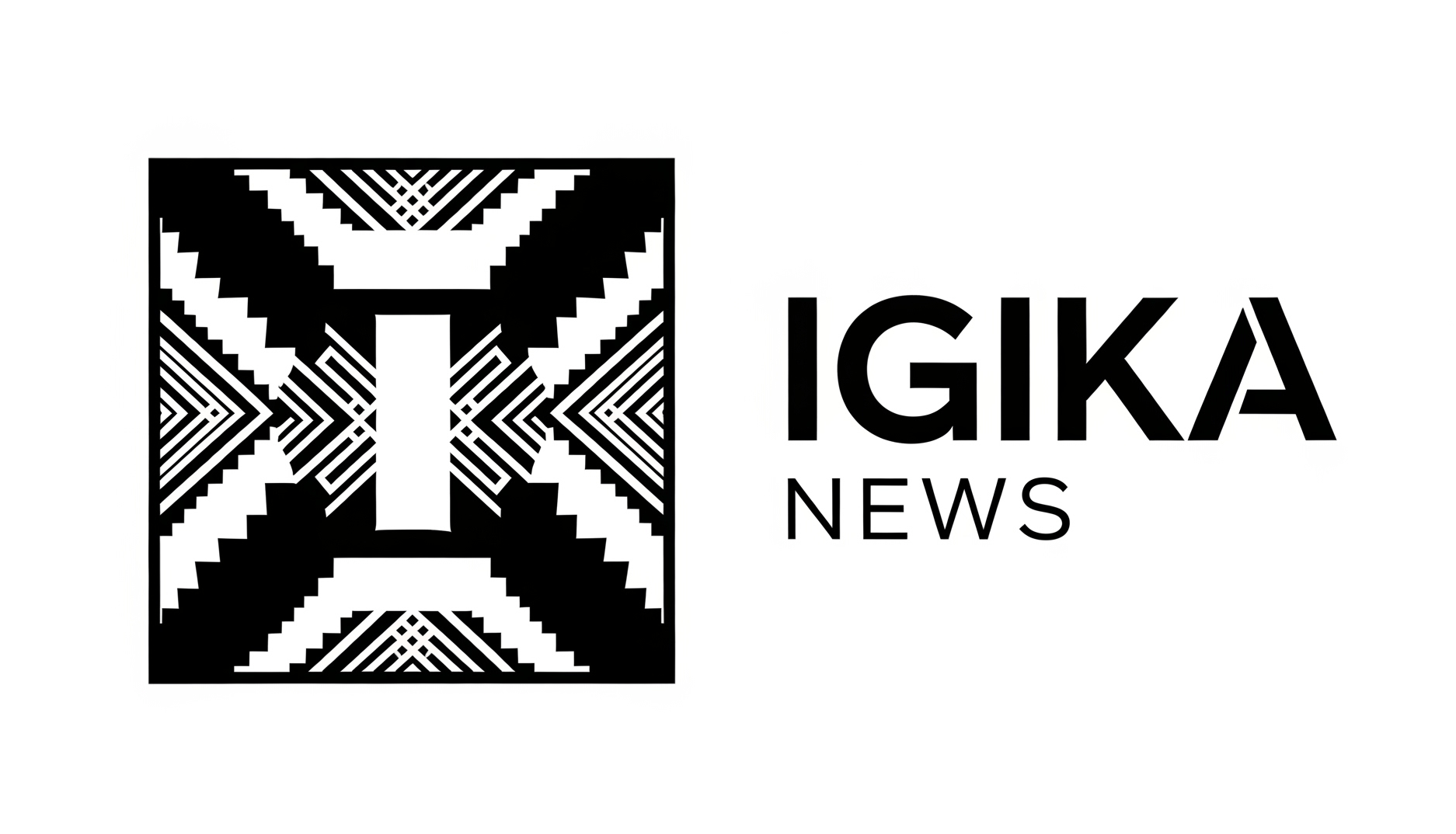Slug: protecting the future of your family by avoiding costly mistakes
Introduction: Beyond Hope and Toward a Family Future That Can’t Be Broken
Hey, readers! It’s your trusted guide, [Your Blog Writer Name], back with a topic that hits home for all of us: Protecting Your Family’s Future. This isn’t just a nice thing to say; it’s a deep promise, a strategic necessity, and the most loving thing you can do for the people who mean the most to you. We all want a bright future for the people we care about. One that is full of chances, free of unnecessary stress, and strong enough to get through anything. But we can’t get there just by dreaming.
Making smart choices and planning ahead are important steps toward a safe future, but avoiding costly mistakes is even more important. Believe me, I’ve seen a lot of financial journeys over the years, and it’s often the avoidable mistakes that stop even the best-laid plans from working out. These mistakes aren’t always big, disastrous ones. Sometimes they’re small mistakes, missed details, or just not knowing how some choices will affect others.
Today, we’re going to talk about the most important parts of keeping your family’s money safe. We’ll talk about practical ways to build resilience, promote prosperity, and, most importantly, give you the ability to see and avoid common mistakes. It’s not about being scared; it’s about being strong. It’s about being smart, strategic, and savvy to take charge, make sure things keep going, and really protect your family’s future. Are you ready to build that strong base? Let’s get started!
Pillar 1: The Foundation of Fluidity—Why You Can’t Negotiate Your Emergency Fund
A strong emergency fund is the rock-solid foundation that every great building needs. For safeguarding the future of your family, that foundation is without a doubt an emergency fund. This isn’t just “some savings.” It’s a specific amount of money that you can easily get to that is meant to help you deal with life’s inevitable shocks without ruining your whole financial plan. Not doing this important step is one of the most common and costly mistakes families make.
The Price of Being Unprepared: Why Not Having an Emergency Fund Is a Costly Mistake
Think about how your car suddenly needs a $1,500 fix. Or a furnace breaks down in the winter and costs $3,000. Or Lessons: Losing a job means no income for several months. What can you do if you don’t have an emergency fund?
Credit Card Debt: High interest rates (20% or more APR) can quickly turn a small repair into a long-term problem. You’re paying two or three times as much for the same emergency. This is a costly error.
Taking money out of a 401(k) or IRA before retirement usually comes with big fees (like a 10% early withdrawal penalty) and taxes. You’re paying for it now, but you’re giving up future growth. Another classic costly error.
Payday loans and title loans are examples of high-interest loans that are bad for you and keep you in debt.
Selling Assets at a Loss: When you need money right away, you have to sell investments or valuable things quickly.
These aren’t just annoying; they hurt your finances. They show exactly why being financially ready is the first step in avoiding expensive mistakes.
How Much Is Enough? The Best Place for Family Safety
Three to six months’ worth of basic living costs is the golden rule for emergency funds.
When it comes to your essential living expenses, think about rent or mortgage, utilities, food, minimum debt payments, transportation, and basic insurance. Not luxuries.
Why 3 to 6 Months?
Three months is a good place to start, especially for families with two incomes and stable jobs with good job security.
Six months or longer is best for families with one income, people who work in fields with unstable jobs, people who are self-employed, or families with health problems or high fixed costs. Many experts say that 9 to 12 months is the best amount of time to be truly resilient in today’s economy.
Helpful Hint: Don’t make guesses. Find out how much your monthly basic costs really are. Keep a close eye on them for a month or two. This unique number is your goal.
Where to Keep Your Emergency Fund: Growth vs. Accessibility
The fund must be safe (not affected by changes in the market) and liquid (easy to get to).
The High-Yield Savings Account (HYSA) is the clear winner. It keeps the money separate from your daily spending account, pays a little more interest than regular savings accounts, and you can get to it right away.
Source Link Idea: Link to a reliable site that compares the best high-yield savings accounts, like Bankrate or NerdWallet.
Money Market Account (MMA): Like HYSAs, they may let you write checks and pay higher interest rates on larger balances. Make sure it is FDIC-insured.
Don’t put your emergency fund in the stock market (it’s too volatile), your checking account (it’s too easy to spend), or cash at home (it’s not insured and can be stolen or lost in a disaster).
Things you can do to build and grow your emergency fund:
Make it automatic: Every payday, set up an automatic transfer from your checking account to your HYSA. Think of it as a bill that you can’t change.
Cut and redirect: Look closely at your budget to see where you’re spending money that you don’t need to (like subscriptions you don’t use, daily coffees, and too much eating out). Put those savings right into your emergency fund.
Tax refunds, bonuses, and unexpected gifts are all great ways to quickly grow your fund. Don’t give in to the urge to spend too much.
Side Hustle It: Think about getting a temporary job on the side or selling things you don’t need to make extra money just for your fund.
Tip: Begin with oak. If 3 to 6 months seems like too much, start with a “starter emergency fund” of $1,000. This small win gives you the mental boost you need to keep going.
You are actively protecting your family’s future and avoiding costly mistakes that could set you back years financially by making your emergency fund a top priority and consistently adding to it.
Pillar 2: Getting Out of Debt—Getting Your Future Out of Financial Trouble
Once your emergency fund is in good shape, the next important step in safeguarding the future of your family is to pay off high-interest debt as quickly and sensitively as possible. Debt, especially consumer debt, is a sneaky force that acts like a financial anchor, slowing your progress, lowering your income, and severely limiting your options. Another common and costly mistake people and families make is letting high-interest debt stay around.
The Unseen Costs of Having Bad Debt
It’s not just the interest payments, which are big, though. Debt with high interest:
Eats Away at Future Savings: Every dollar you spend on interest is a dollar you can’t save for retirement, college, or other family goals.
Limits Financial Freedom: It makes it harder for you to make decisions, like changing jobs, going back to school, or dealing with surprise costs without taking on more debt.
Causes Stress and Strain: The stress of debt can affect your mental health, your relationships, and your overall health.
Damages Your Credit Score: Using too much credit can hurt your credit score, which will make it harder and more expensive to get loans for homes or cars in the future.
These hidden costs are costly mistakes that can add up over time, making it harder to reach your financial goals in the future.
Strategic Debt Annihilation: How to Avoid Costly Mistakes When Paying Off Debt
There are two well-known and effective ways to deal with debt, and each has its own pros and cons:
The Snowball Method for Debt
How it Works: Write down all of your debts, from the one with the lowest balance to the one with the highest, no matter what the interest rate is. Pay the minimum on all but the smallest, then use all of your extra money to pay off the smallest. Then, add that payment to the next smallest one, and so on.
Why it Works: It has a lot of psychological power. Paying off smaller debts quickly gives you a lot of motivation to keep going, which makes it easier to stick to the plan.
Tip: This method is great if you need a lot of little pushes to stay on track.
Interlink Idea: Link to a blog post you wrote that goes into detail about the differences between Debt Snowball and Debt Avalanche.
The Debt Avalanche Method:
How it works: Write down all of your debts in order of interest rate, from highest to lowest. Pay the minimum on all but the debt with the highest interest rate. Then, use all of your extra money to pay off that debt as quickly as possible. After that, add that payment to the debt with the next highest interest rate.
Why it Works: It’s the most efficient way to do math, and it will save you the most money in interest over time.
Helpful Hint: This method works best if you are very disciplined and want to save as much money as possible.
Smart Tools for Reducing Debt: How to Avoid Costly Mistakes with Solutions
In addition to the main methods, use these tools with care:
Balance Transfers (with no interest rate offers):
How it works: Move your high-interest credit card debt to a new card that has a 0% introductory APR for a set amount of time (for example, 12 to 21 months).
Why to Use It (Carefully): It gives you a “breather” from interest, which means more of your payment goes toward the principal.
Important Warning: Only use this if you have a solid plan to pay off the balance before the promotional period ends. If you don’t, you’ll have to pay deferred interest or high regular rates. And don’t use the card to buy anything new.
Source Link Idea: Link to a trustworthy site that lists the best 0% APR balance transfer cards and includes warnings.
Loans for Debt Consolidation:
How it Works: To pay off several debts with higher interest rates, you take out a new loan (usually a personal loan or HELOC if you own a home) with a lower interest rate. This makes payments easier.
Why to Use It (Carefully): It can lower the amount of interest you pay overall and make your budget easier to manage.
Avoiding Costly Mistakes: Make sure the new interest rate is much lower. If the loan lengthens your repayment period by a lot, be careful. Even though the rate is lower, you may end up paying more interest over time. And, as always, deal with the real reason for the debt so you don’t get more.
Negotiating with Creditors: If you have a good payment history, sometimes all you have to do is call your credit card company and ask for a lower interest rate.
Steps You Can Take to Get Rid of Debt:
Stop getting into more debt by cutting up your credit cards, freezing them, or deleting them from your online shopping accounts. Talk about the spending habits that got you into debt.
Make a detailed plan for how to pay it back and write it down. Look at the numbers. Keep an eye on your progress.
Get Extra Money: Sell things you don’t use, take on a short-term side job, or put bonuses and tax refunds toward paying off your debt faster.
Tip: Celebrate important events! Paying off each debt is a big win. To stay motivated, recognize how far you’ve come.
Getting rid of high-interest debt is an important step in keeping your family’s future safe. By decisively avoiding costly mistakes of financial inertia, you can free up your income, lower your stress, and give yourself the tools you need to build wealth.
Pillar 3: Full Protection—Insurance Against Life’s Unavoidable Shocks
Your family’s future is still at risk even if you have a good emergency fund and little debt. This is because you haven’t carefully protected your different assets and debts from unexpected events. Smart insurance choices are at the heart of this pillar of Safeguarding the Future of Your Family. It’s also important to avoid costly mistakes by having the right coverage, not just any coverage.
The Cost of Not Having Insurance or Being Underinsured: Why Not Having Coverage Is a Costly Mistake
Picture a situation:
You don’t get health insurance because you think you’re healthy. You get a six-figure bill because of a sudden medical emergency.
You don’t have enough car insurance. You cause a bad accident, and your things are taken to pay for the damage.
Your family loses your income if you don’t have life insurance.
These aren’t just made-up situations; they’re real-life situations that can happen to families who don’t understand why insurance is so important. The cost of premiums is nothing compared to the damage that could happen if you don’t have enough insurance. This is the most costly mistake of all.
Important Types of Insurance to Protect Your Family:
Health Insurance:
Why It’s Important: Medical emergencies are one of the main reasons people go bankrupt. Health insurance keeps you healthy and saves you money.
Don’t just get any plan; avoid making costly mistakes. Know what your deductible, co-pays, co-insurance, and out-of-pocket maximum are. Picking a cheap plan with a high deductible that you can’t afford is a hidden cost.
If you have a high-deductible plan that qualifies, make the most of your Health Savings Accounts (HSAs). They come with three tax benefits and can be a great way to save for future medical bills or retirement.
Link to Healthcare.gov or a state health exchange as a source link idea.
Insurance for Life:
Why It’s Important: Life insurance pays your dependents’ bills and keeps their lifestyle going if you die too soon. This way, they can pay off debts and reach their goals, like going to college.
Staying Away from Costly Mistakes:
No Coverage: The worst thing that can happen.
Wrong Type: Getting a whole life policy that costs a lot and is hard to understand when a simpler, cheaper term life policy would work better for you. Term life insurance gives your family the best protection during the years when they are most financially vulnerable.
Not enough coverage: not buying enough. To figure out what you really need, use the “DIME” method (Debt, Income, Mortgage, Education).
After big life events like getting married, having a baby, moving into a new home, or getting a big raise, make sure to check your life insurance needs again. Your needs change.
Interlink Idea: Link to a blog post called “Choosing the Right Life Insurance: Term vs. Whole.”

Insurance for disabilities:
Why It’s Important: Your ability to make money is your most valuable asset. If you get sick or hurt and can’t work, disability insurance will pay you some of your income. During your working years, it’s much more likely that you’ll become disabled than that you’ll die.
Avoiding Costly Errors: Forgetting this important coverage. A lot of people depend on small employer benefits or hope for Social Security Disability, which is often not enough and hard to get. This mistake is very costly because of this oversight.
Helpful Tip: Know the “elimination period” (the time you have to wait before benefits start) and the “benefit period” (the time benefits last). For better protection, think about getting a private policy in addition to your employer’s coverage.
Source Link Idea: Link to a trustworthy article that explains the difference between “own occupation” and “any occupation” disability definitions.
Insurance for homeowners and renters:
Why it’s Important: It protects your home and belongings and gives you liability coverage if someone gets hurt on your property. Landlords, your insurance does NOT cover your things!
How to Avoid Costly Mistakes:
Underinsurance means not having enough coverage to rebuild your home or get new things to replace everything you lost.
Actual Cash Value (ACV) vs. Replacement Cost (RC): ACV pays out the depreciated value, while RC pays to replace new items. Choosing ACV for personal property is a costly mistake.
Tip: Make a list of your things (with pictures or videos) so that claims are easier. Look over your policy every year.
Car insurance:
Why it’s important: It protects you from paying for damage to other people’s property (liability) and damage to your own car. Without enough liability coverage, a bad accident could wipe out all of your assets.
Avoiding costly errors: having only the bare minimum of liability coverage. Serious accidents can quickly cost more than the state’s low minimums for legal fees and medical bills, putting your personal assets at risk. A lot of drivers make this costly mistake.
Tip: To lower your premiums, think about raising your deductibles. Just make sure you have enough money in your emergency fund to cover them. Get quotes from different places on a regular basis.
Insurance for Umbrellas:
Why it’s Important: It gives you extra liability coverage on top of your home and auto policies, protecting your assets from big lawsuits.
Not making costly mistakes: Thinking you’re “not wealthy enough” for it. It gives you millions of extra protection for a low premium. A single big lawsuit can ruin a middle-class family’s life. This mistake can cost a lot of money.
If your net worth is higher than your underlying liability limits, an umbrella policy is a good, cheap way to add to your protection plan.
By carefully going over and getting the right insurance policies, you are taking steps to protect your family’s future and avoid costly mistakes that can happen when life throws you a curveball.
Pillar 4: Strategic Wealth Building—Investing for the Dreams of Tomorrow
Building long-term wealth through smart saving and investing is the next important step in Safeguarding the Future of Your Family, now that your financial safety nets are in place. This is where your money starts to work for you, using the amazing power of compounding to pay for your family’s goals, like retirement and education. But this area also has chances to avoid costly mistakes that could stop your progress.
The Price of Putting Off Investing: Why It’s a Bad Idea to Wait
One of the most costly mistakes you can make is to put off starting your investment journey. Because of the power of compound interest, money that is invested early has a lot more time to grow, which means you don’t have to put in as much money over time.
Scenario Insight (Expand Here): Give a numerical example. Person A puts $200 a month into an account from age 25 to 35, then stops. Person B puts $200 a month into an investment from age 35 to 65. Show how Person A’s first 10 years of investing can often outgrow Person B’s 30 years because of compounding.
Smart Investing Principles: How to Avoid Costly Mistakes in Your Plan
Put tax-advantaged accounts first:
401(k) and 403(b) plans are employer-sponsored plans. If your employer offers a match, make sure to contribute enough to get the full match. This is the easiest money you’ll ever “earn” and gives you a 100% return on your money right away. Not taking the match is a costly mistake.
IRAs (Roth and traditional individual retirement accounts) are good because they give you tax breaks and let you choose how to use your money.
Tip: After getting your employer match, put as much money as you can into these accounts every year.
Source Link Idea: Link to the IRS page that talks about the limits on contributions to retirement plans.
Make your portfolio more diverse:
Why It’s Important: Don’t put all your eggs in one basket. Spread your investments out over different types of assets (stocks, bonds, real estate), industries, and places.
Avoiding Costly Mistakes: Putting all of your money into one stock or a new, unproven asset that is trending is very risky and could cost you a lot of money.
Tip: Low-cost index funds and ETFs that follow broad market indices, like the S&P 500, are a quick and easy way to diversify your portfolio.
Keep Costs Down:
Why it’s important: High investment fees, like those charged by actively managed mutual funds with high expense ratios, can greatly lower your long-term returns.
Avoiding Costly Mistakes: Not paying attention to fees is a quiet but very costly mistake. Over the course of many years, even a 1% higher fee can cost you tens or hundreds of thousands of dollars.
Tip: Choose low-cost index funds, ETFs, and well-known brokerage platforms that are clear about their fees.
Stay consistent and invest for the long term.
Why It’s Important: Changes in the market are normal. Long-term investors ride out the dips and make money from the markets’ overall upward trend.
Avoiding costly mistakes: selling in a panic during market downturns. This locks in losses and misses the chance to recover later. This is a very common and costly mistake.
Tip for the real world: Make your investments automatic. Set up regular payments so that you are always buying (dollar-cost averaging), no matter what the market is doing.
Investments should match your goals.
529 plans are a good way to save for college because they are tax-advantaged for education.
For goals that are only a few years away (like saving for a down payment on a house), keep your money in less risky investments like HYSAs or short-term bond funds so you don’t have to worry about the market right before you need it.
By carefully making and following a strategic investment plan, you are actively protecting your family’s future and avoiding costly mistakes that could ruin your efforts to build wealth.
Pillar 5: Legacy and Continuity—The Importance of Planning Your Estate Ahead of Time
The last but very important part of safeguarding the future of your family is making a full estate plan. This isn’t just for rich people, and it’s not a sad subject. It is a great act of love and duty to make sure that your wishes are followed, your assets are divided up as you want, and your loved ones are taken care of without any problems if you get sick or die. One of the most common and often most expensive mistakes a family can make is to ignore this.
The High Cost of Not Having a Plan: Why Not Planning Your Estate Is a Costly Mistake
If you don’t have a good estate plan:
Intestacy Laws Rule: The state decides who gets your property and, most importantly, who takes care of your kids. You might not want them to make the same choices. This is a very costly mistake that will have a big emotional and financial impact.
Delays and Costs of Probate: Your assets could be stuck in a long, public, and expensive court process (probate) for years, making it hard for your family to get the money they need.
Family Disputes: Not being clear or having unclear instructions can cause family fights that tear relationships apart.
Unnecessary Taxes: If you don’t plan ahead, your estate might have to pay taxes that aren’t necessary.
These mistakes cost a lot of money, but they also cost your loved ones a lot of emotional and relational pain.
Important Estate Planning Papers to Keep from Making Costly Mistakes:
Last Will and Testament:
Why it’s Important: It tells how to divide up assets, names an executor, and, most importantly for families, names guardians for minor children.
Not having a will or having an old one can lead to costly mistakes. Changes in life, like births, deaths, marriages, and divorces, need to be updated. A will that is out of date can cost a lot of money.
Practical Tip: Even though there are online services, it’s best to talk to an estate planning lawyer about making a will that follows the laws in your state.
Advance Directive for Healthcare or Living Will:
Why it’s important: It tells doctors what you want if you can’t speak for yourself.
Not making costly mistakes: letting loved ones make decisions about your end of life without any guidance, which can cause a lot of stress and even conflict.
Durable Power of Attorney (POA) for Money:
Why it’s Important: It tells someone to take care of your money matters if you can’t.
Avoiding Costly Mistakes: If you don’t have one, your family may have to go to court to get guardianship, which is a long and expensive process.
Healthcare Power of Attorney and Healthcare Proxy:
Why it’s Important: It names someone to make medical decisions for you if you can’t.
The Power of Beneficiary Designations: How to Avoid Costly Account Mistakes
Many accounts, like life insurance, 401(k)s, IRAs, and bank accounts with “POD,” go directly to the named beneficiaries without going through probate.
Why it’s Important: It gives your family quick access to money, so there are no delays.
Avoiding costly errors: outdated beneficiary designations. If you get divorced and don’t change the beneficiary on your life insurance policy, your ex-spouse may get the money instead of your current family. This is a very common and very costly mistake.
Tip: Check all of your beneficiary designations every year, and especially after big life events. They take the place of your will!
Trusts: Adding More Complexity (and Safety)
Trusts can be very helpful for more complicated estates or just to avoid probate and give clear instructions.
A revocable living trust keeps your assets safe and lets them go directly to your beneficiaries when you die, without going through probate. Can be changed while you are still alive.
A special needs trust lets you take care of a loved one with disabilities without putting their ability to get government benefits at risk.
If you have a lot of money, a complicated family situation, or worries about privacy, talk to an estate planning lawyer to see if a trust is right for you.
The best way to protect your family’s future is to plan your estate ahead of time. It’s about leaving a legacy of peace, clarity, and a smooth transition, as well as avoiding costly mistakes that could haunt your loved ones for years.
Useful Tips for Daily Use: Making Your Family’s Future Safe
Knowledge is power, but only when you use it. This is how to use the ideas from Safeguarding the Future of Your Family and Avoiding Costly Mistakes in your daily life:
First, set up automatic savings:
Set up automatic transfers for your retirement accounts, emergency fund, and investment contributions.
Benefit: This makes sure you “pay yourself first” and build your safety nets every month, so you don’t have to use willpower.
Tip: Start with small amounts that you can handle. Every year, or whenever you get a raise, add 1% of your salary to your contributions.
Dates for Regular Financial Reviews:
Set up a “family finance checkup” with your partner every three months or every year. Check on your budgets, emergency funds, debt progress, and how well your investments are doing.
Keeps you on track, lets you change course, and makes sure both partners are on the same page.
Tip: Don’t make it a blame game; make it a positive, cooperative talk. Have fun with your successes!
Make a “Master Document” file, both on paper and on your computer:
Action: Get all of your important legal and financial papers together, like your birth certificates, wills, insurance policies, property deeds, and account login information, through a secure password manager. Keep a paper copy in a safe, fireproof place and a digital backup (cloud storage that is encrypted).
Benefit: It makes sure that your loved ones can quickly get the information they need in an emergency, which saves them from making costly mistakes by searching frantically and waiting.
Tip: Give a trusted family member or your executor the address and instructions for getting to the location.
Accept that you will always need to learn about money.
What to do: Set aside time each week to learn. Listen to podcasts, read books, or attend webinars. You can also read good financial blogs like this one.
Benefit: Staying up to date helps you find new chances and, most importantly, learn how to avoid making costly mistakes in the future.
Tip: Before you go after trendy investments, make sure you know the basics.
“What If” Questions:
Action: Talk to your partner about possible “what if” situations every now and then. For example, what if one of us lost their job? What if there is a big medical emergency? What if we had to leave our house?
Benefit: These talks can show you where your plan might have holes and where you might be able to avoid making costly mistakes by not planning well enough.
Don’t let these talks make you anxious; think of them as problem-solving sessions instead.
Don’t do everything yourself, especially if it’s illegal or hard.
Action: It’s great to learn on your own, but you should know when to hire professionals like a fee-only financial planner, an estate planning attorney, or an independent insurance agent.
Benefit: Their knowledge can help you avoid making big, costly mistakes that could happen if you don’t understand complicated laws or financial products.
Tip: Before hiring a professional, do your homework and check their credentials and fee structures.
By carefully following these useful tips, you give yourself and your family the power to take charge of your financial future, actively protect your family’s future, and confidently avoid costly mistakes along the way.
Conclusion: Your Legacy of Security—A Safe Future, Mistakes Avoided
We’ve come to the end of our in-depth look at Safeguarding the Future of Your Family. Every step strengthens an unbreakable foundation, from setting up an emergency fund and ruthlessly paying off debt to getting full insurance coverage and carefully planning your legacy with well-thought-out estate documents.
The most important thing we’ve talked about over and over again is how to avoid making costly mistakes. These aren’t just little mistakes; they are often the quiet enemies that can undo years of hard work and good intentions. But you can avoid these problems and make your future brighter and stronger by being aware, planning ahead, and taking consistent action.
This journey isn’t just about money; it’s also about the peace of mind that comes from knowing you’ve done everything you can to keep your loved ones safe. It’s about giving your family the tools they need to succeed, even when life is uncertain. Begin using these methods right away. Look over your plans, find the holes, and then take the next important step. You should do everything you can to protect your family’s future. Your commitment to safeguarding the future of your family will be the most lasting thing you leave behind.
source:
Bankrate – Best High-Yield Savings Accounts: https://www.bankrate.com/banking/savings/best-high-yield-interests-savings-accounts/
NerdWallet – Best High-Yield Online Savings Accounts: https://www.nerdwallet.com/best/banking/high-yield-online-savings-accounts
Consumer Financial Protection Bureau (CFPB) – Debt Collection: https://www.consumerfinance.gov/consumer-tools/debt-collection/














